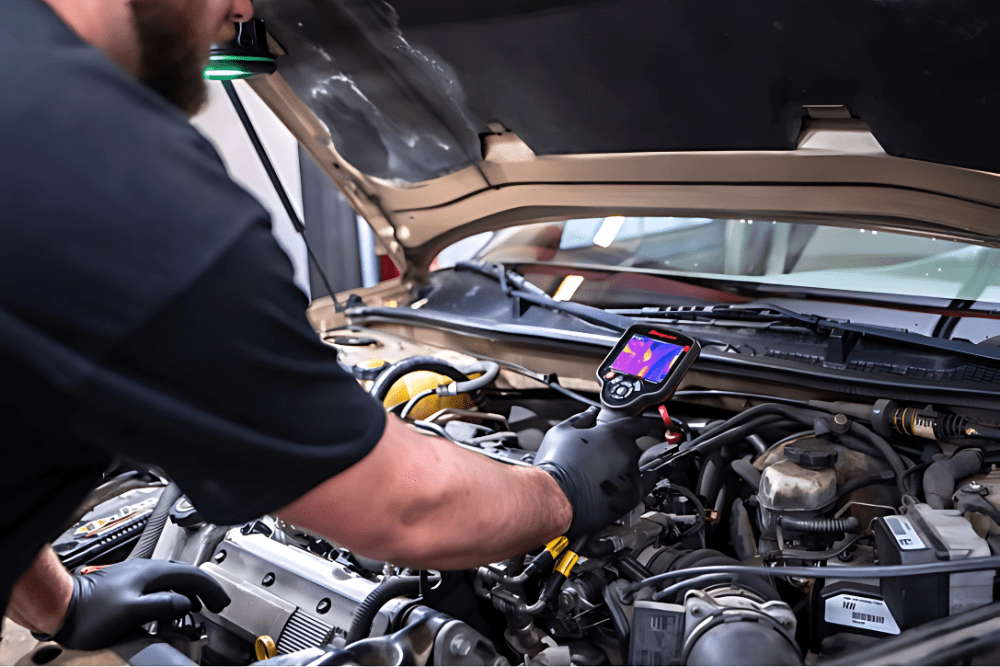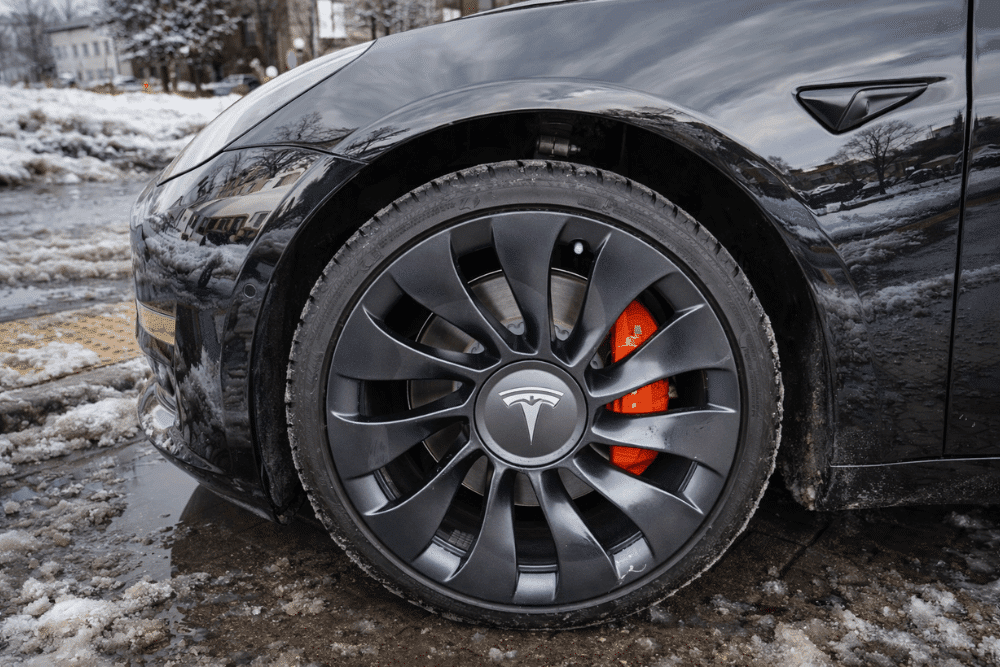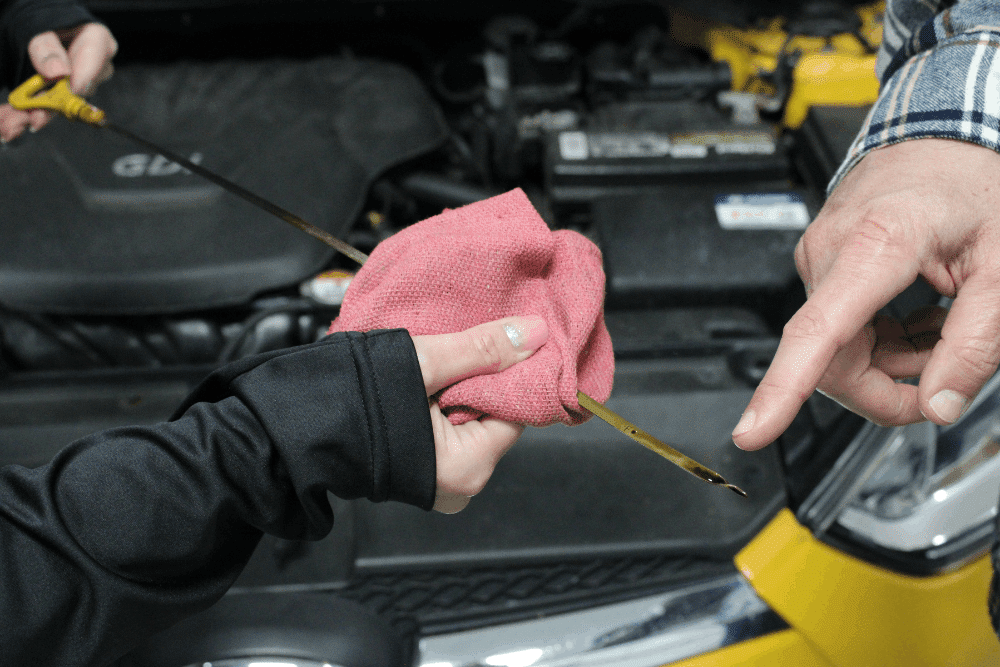One day, it’s a small vibration. Next, your car won’t start. Most breakdowns don’t happen suddenly; they build up over time, often beginning with subtle changes in how your vehicle sounds, feels, or handles. These early signs are easy to ignore, especially if the car still “seems fine.” But waiting too long can lead to serious damage, costly auto repairs, or a breakdown at the worst possible time.
At Allied Automotive, we help Allentown drivers recognize those red flags and respond with confidence. Backed by real experience, advanced diagnostics, and a relationship-focused approach, we don’t just fix problems, we help you understand them and make the smartest decision for your vehicle.
Not sure which symptoms mean “fix me now” and which can wait? This guide breaks down the top warning signs that demand immediate attention, how they affect your safety and budget, and what to do when your car starts signaling trouble.
Postponing Repairs? Here’s Why Your Car Disagrees
It’s tempting to brush off strange noises or dashboard lights, especially if your car still seems to run fine. But modern vehicles are complex machines. A minor problem in one system, like your suspension or fuel injection, can affect performance, safety, and even long-term engine health.
Putting off repairs can lead to:
- Reduced fuel efficiency
- Costlier part failures
- Voided warranties
- Sudden breakdowns
The bottom line? Waiting rarely saves money.
1. Your Check Engine Light Stays On
Of all the warning signs, the check engine light is the one most drivers dread. It’s vague, it’s bright, and it doesn’t go away on its own.
Sometimes, it’s something simple like a loose gas cap. But other times, it’s alerting you to serious problems with your engine, catalytic converter, or ignition system. If the light starts blinking, that’s especially urgent. It can mean your engine is misfiring, which can cause internal damage fast.
Don’t guess. If your check engine light in Allentown has been on for more than a day, get a proper diagnosis.
Schedule your service online or call us at 610-351-0020 to keep small issues from becoming costly repairs.
2. Unusual Noises or Vibrations While Driving
Your car should drive quietly and smoothly. When it doesn’t, your vehicle is trying to get your attention.
Common sounds and what they might mean:
- Squealing when braking: Worn brake pads
- Grinding or clunking over bumps: Suspension problems
- Whining under the hood: A failing power steering system
- Vibrations at high speed: Wheel balance or tire issues
Unaddressed, these issues can increase stopping distances, compromise handling, and reduce fuel efficiency. An experienced technician can pinpoint the cause and restore your vehicle’s performance.
3. Your Car Stalls or Struggles to Start
You shouldn’t have to cross your fingers when turning the key. If your engine takes longer to start or stalls while driving, don’t ignore it.
Stalling can be caused by:
- Battery or alternator issues
- Failing spark plugs
- Clogged fuel filters
- Sensor malfunctions
Even if the car eventually starts, this is not something to put off. Getting stuck in traffic isn’t just inconvenient, it’s unsafe.
4. Burning Smells or Smoke
Unfamiliar smells are another red flag. A sweet scent might point to a coolant leak. A burning odor could indicate an oil leak dripping onto hot engine parts. Electrical smells? That could be wires overheating, which is dangerous.
If you see smoke coming from under your hood, pull over immediately and call for help.
At this point, you’re well past the “wait and see” phase.
5. Dashboard Lights You Don’t Recognize
Beyond the check engine light, others should grab your attention:
- ABS light: Possible brake or wheel sensor issues
- Battery light: Alternator or charging system problem
- TPMS light: Tire pressure is low or sensor failure
Your vehicle’s onboard computer is smart, but you still need a trained eye to interpret what it’s telling you. A full diagnostic scan can clarify what’s happening and help you take action confidently.
Pop, Click, Clunk: The Strange Science Behind Vehicle Sounds
Ever wondered how mechanics can guess what’s wrong with a car just by hearing it?
Every mechanical component in your car has a “sound fingerprint.” When that fingerprint changes—gets louder, slower, more rhythmic—it usually means a specific part is out of sync.
For example:
- A rhythmic thump while driving often points to tire or wheel damage.
- A ticking noise that speeds up with acceleration can indicate low oil or valvetrain problems.
- Hissing noises under the hood often come from vacuum leaks or pressure loss.
Skilled technicians use their ears as much as their tools. At a quality repair shop, technicians don’t just plug into your car’s computer; they listen, observe, and diagnose with both technology and experience.
This blend of sensory intuition and advanced diagnostics is what separates good repair shops from exceptional ones.
Allentown’s Go-To for Honest, High-Quality Auto Repair
There are dozens of places offering “auto repair near me”, but not all shops deliver the same level of care or expertise. That’s why Allied Automotive stands out.
A Relationship-First Approach
Allied Automotive was built on the belief that car repair should be transparent, educational, and relationship-based. It’s a shop where customers feel respected and informed, not overwhelmed.
Key Advantages:
- ASE-certified team with real expertise in diagnostics, brakes, suspension, and more
- OEM-level tools that match what dealerships use
- Digital vehicle inspections (DVIs) with full transparency via text or email
- Nine free loaner cars, a rarity in the area
- A dedicated customer service rep to guide every new client
- Gifts and thank-you items with each visit
- Welcoming environment led by a team that includes friendly, knowledgeable female staff members
- 36-month/36,000-mile warranty and 5-year workmanship guarantee
From free engine light scans to advanced repairs on domestic, Asian, and hybrid vehicles, Allied offers everything you’d expect from a dealership, without the upselling or impersonality.
Services That Keep You Moving
Here’s what you can expect when you bring your car to Allied:
- Brake and suspension repair
- A/C diagnostics and 1234yf refrigerant service
- Electrical and engine diagnostics
- Alignments with the Hunter Hawkeye Elite system
- Tire sales, road force balancing, and repairs
- State inspections and emissions testing
- Preventative maintenance and fluid services
- Fleet maintenance for business vehicles
- Financing through Synchrony, Snap!, Koalifi, and American First
We also work on modern EVs, light-duty diesels, and are known locally for our expertise with Jeep Wranglers.
Need a specific service? See the full list of what we offer.
Car Care That Works Around Your Life
Life is busy, and car issues rarely come at a good time. That’s why Allied Automotive makes the repair process as convenient as possible:
- After-hours drop-off and secure pick-up
- Mobile pay option
- Shuttle service for nearby customers
- Comfortable waiting area with Wi-Fi and refreshments
You’ll also get clear, proactive communication through every step, whether by phone, text, or email. No surprises, no mystery charges.
Frequently Asked Questions (FAQ)
How often should I get my car inspected to avoid emergency repairs?
It’s recommended to have your car professionally inspected at least twice a year—once before summer and once before winter. However, if you’re a frequent driver or use your vehicle for work, quarterly inspections can help you catch issues before they escalate. Allied Automotive offers full digital vehicle inspections that give you a clear, visual overview of your car’s condition.
Can weather affect how urgent a car repair becomes?
Yes. Extreme heat or cold can accelerate wear and tear, especially on your battery, tires, and fluids. For example, cold weather can worsen small battery or ignition issues, while heat can cause coolant problems to escalate into overheating. Seasonal check-ups are essential for preventing these types of failures.
Is it safe to drive with warning lights on if the car feels normal?
Not necessarily. Some warning lights, like those related to emissions or airbag systems, won’t affect how the car drives immediately, but can have serious long-term consequences. Just because a vehicle “feels fine” doesn’t mean it is. Diagnostic scans can uncover hidden issues that aren’t yet noticeable behind the wheel.
Are there any warning signs specific to hybrid or electric vehicles?
Absolutely. While hybrids and EVs often have fewer moving parts, they can show issues through:
- Sudden drops in battery range
- Unusual cooling fan activity
- Dashboard errors related to power systems: Because these systems are more complex, it’s important to visit a shop like Allied Automotive that’s trained and equipped to handle hybrid and EV diagnostics.
What should I do if I hear a noise that only happens sometimes?
Intermittent noises are tricky but often early signs of mechanical wear. Try to note when it happens (e.g., cold starts, braking, turning) and bring that info to your repair shop. A shop like Allied Automotive can perform road tests and pinpoint diagnostics to track down intermittent issues before they turn into persistent ones.
You Deserve More Than a Quick Fix. You Deserve Real Peace of Mind
Car problems never come at a convenient time, but dealing with them shouldn’t make your life harder. At Allied Automotive, we meet you where you are, with transparent service, expert diagnostics, and a friendly team that truly cares.
Whether it’s a persistent check engine light or a mystery noise you can’t quite place, we’re ready to dig deeper and keep your vehicle running at its best. We’ve built a shop where communication, integrity, and top-level service come standard.
Take the stress out of car repair. Contact us today:
- Call: 610-351-0020
- Visit: 5580 Quince Rd, Allentown, PA 18106
Schedule an appointment from your phone, tablet, or desktop.




